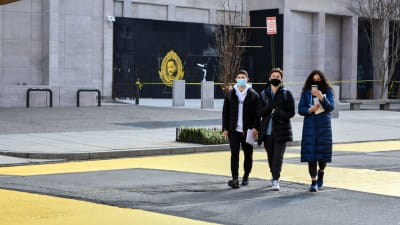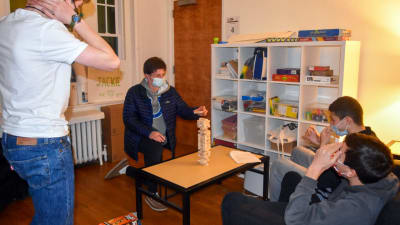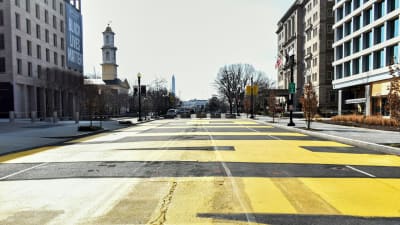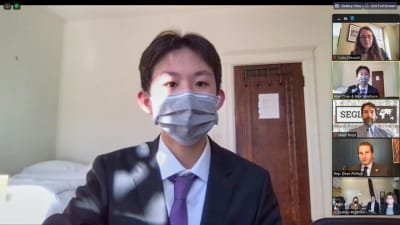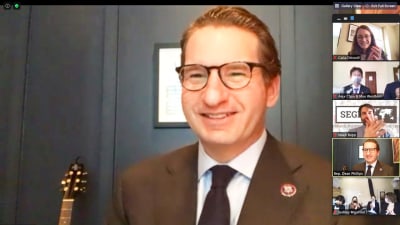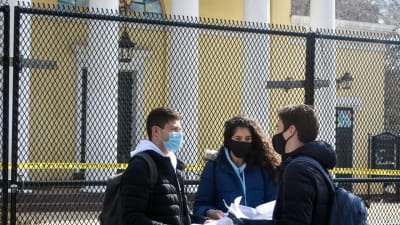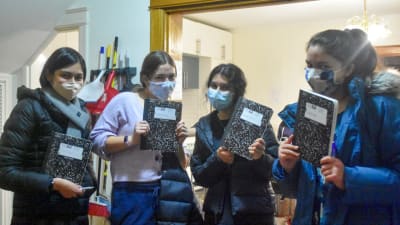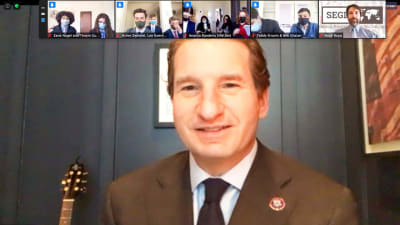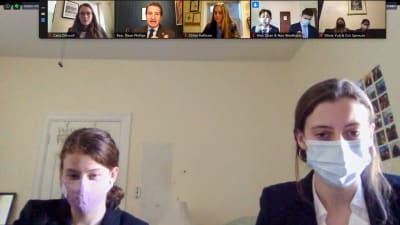Go-go and George Floyd: the ethics of race and protest
On May 25, 2020, eight minutes and 46 seconds changed history.
Or did they?
The answer to that question depends, in large part, on the actions our leaders–current and future–take. What ought those leaders–what ought we–to do in response to George Floyd’s death? What, if any action, should we take in our local communities? In our own lives? These questions focused our semester’s second case study.
The central feature of our week was a trip to the newly-minted “Black Lives Matter Plaza,” a closed-off city block adjacent to Lafayette Park, the White House, and St. John’s Episcopal Church (the latter made famous as the location of former President Trump’s photo holding a Bible).
Students walked where protesters scrambled before Trump’s visit to St. John’s, contemplated DC Mayor Muriel Bowser’s makeshift and defiant public space, and viewed impromptu works of political art.
On Thursday evening, we examined one of DC’s thorniest controversies–gentrification–and its intersection with race. We attended a live showing of the new documentary “Go-Go City: Displacement and Protest in Washington, DC,” and asked questions at a panel discussion afterward with the film’s creator and some of its “stars.” The film definitely has a point of view, and later this semester we will meet with those who offer other takes. (You can read an NPR story about the central controversy that the documentary features here.)
This case study will continue in future weeks: we’re just getting started!
Meanwhile, we met with our first member of Congress: Dean Phillips (D-MN), who is in his second term. Phillips is a longtime friend of SEGL and a member of the House Committees on Financial Services, Foreign Affairs (one of the Committees to hold impeachment hearings in the last Congress), and Ethics. He was also present on the House floor during the events of January 6th, 2021. Phillips recently gave a “viral” speech in the wake of January 6th. That speech addressed both the insurrection and the notion of privilege.
Our students asked the Congressman a variety of questions that kept him on his toes: everything from Burma to fiscal policy to his reflections on January 6th. And Phillips, in turn, left our students with a tricky policy dilemma: “Raising the minimum wage to $15 an hour by 2025 would result in 1.4 million more unemployed Americans,” he said. “What should we do?” At least one student has already emailed him an answer.
(We will meet with other Members of Congress later this semester.)
Next up: the 1994 Rwandan genocide.





